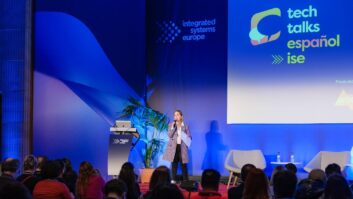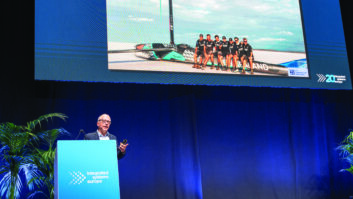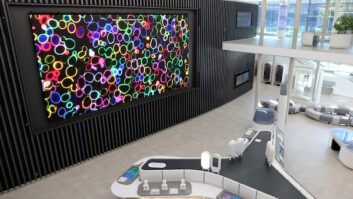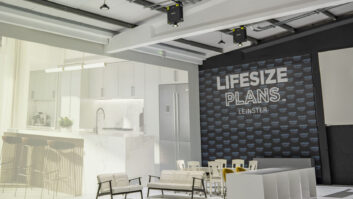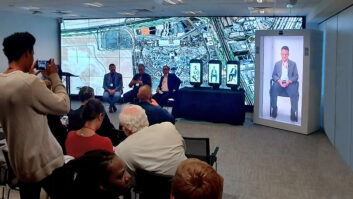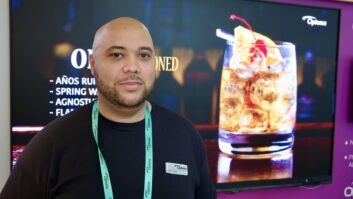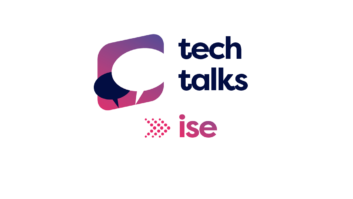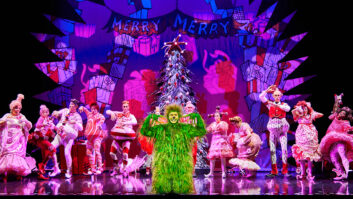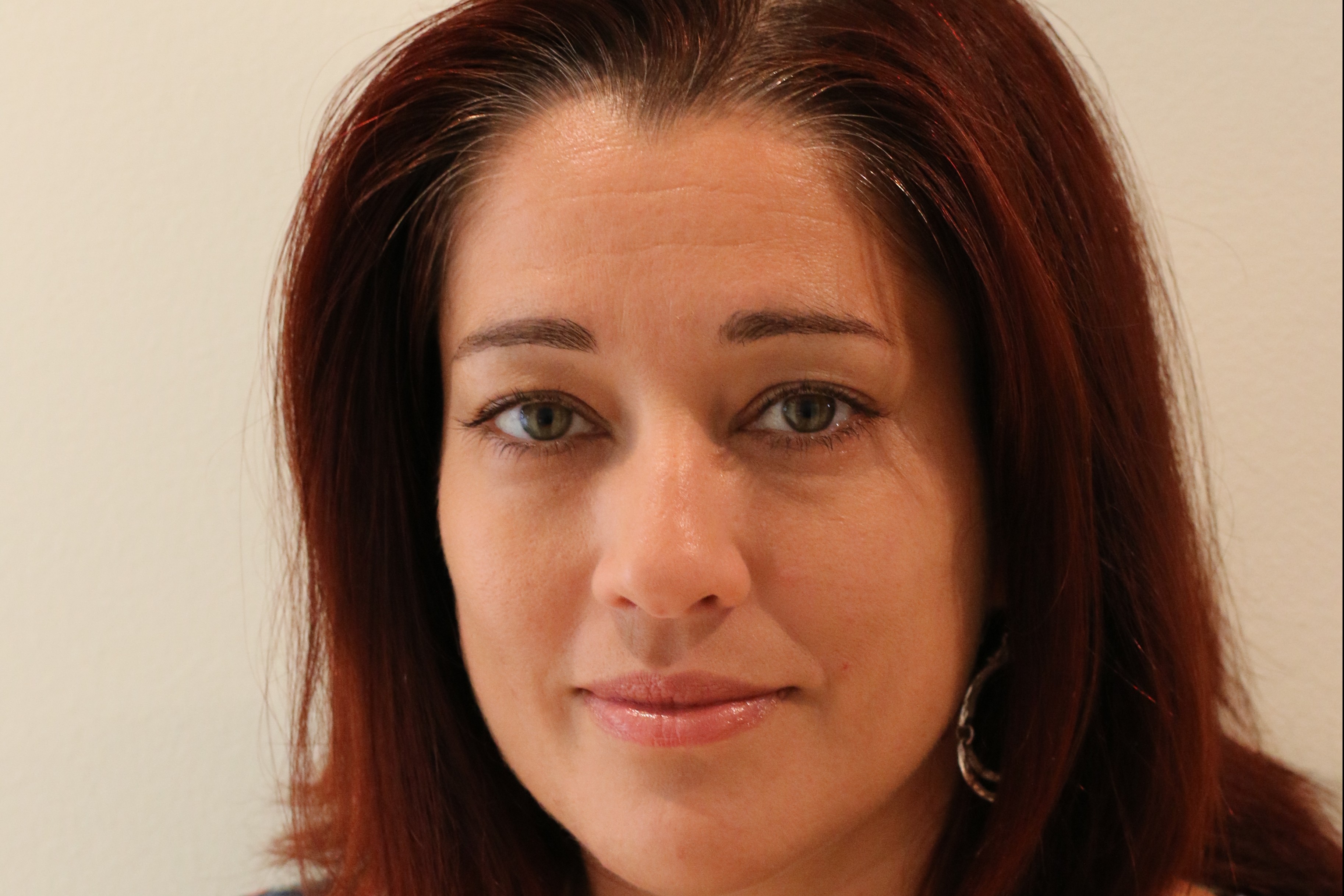
In April this year, Emma Bigg decided to end a long career with SSE and to branch out on her own, founding AV consultancy Octavius RE. Paddy Baker finds out about the path that brought her to that decision.
How did you get into the industry?
I’d always been interested in theatre since I was at school, and when I went to Bradford University – where I studied for a degree in electronics, communications and computer engineering – I got involved with the theatre technical team there, and got to know all the guys who did the lighting and sound for the student union events.
I was more on the lighting side when I started at university, but then I got converted to audio and I got really interested in live music, live sound and so on. I had a sandwich year, so I wrote to a number of companies and got some work experience with Wigwam. That led on to getting a job with Adlib Audio, where I worked for about six months.
During the summer, before I went back to university, I ended up working in the Mean Fiddler Festival office. It’s at that point I got to know the people at SSE because I was helping book all the production suppliers and co-ordinating band information. By now, I was absolutely determined that once I’d graduated, I wanted to work in the industry. I ended up writing to SSE and asking “Will you give me a job?” – and they gave me one. I became the hire sales assistant in 1999.
When did you start working on installations rather than events?
I worked for SSE for six or seven years before moving away for 18 months. But then SSE called me to say they were going to buy a company in London and were going to set up an installation-focused business. They needed somebody to come in and manage the acquisition and then turn it around. I thought that sounded interesting. It was a bit of a baptism of fire: I knew about sound systems, but installation was a bit different. We had some good technical staff who came with the company and it was a case of building on that, and then looking at other opportunities.
Is there anything that, with hindsight, you’d have done differently there – in terms of “I wish I’d known about…” ?
I think in terms of the way we did things, it would be hard to say we would have done anything differently. We didn’t have as much choice in how we did things at the time. I think it took us a long time to appreciate that we were actually pretty good – even as a newcomer in that environment.
Because we came from a pro audio/touring background, where you’ve got to deliver an event in a high-risk environment, you get used to undertaking a high level of engineering to ensure the system will always deliver – and we applied that kind of engineering to installs. We probably offered a quality of install that a lot of people weren’t offering. But everything was a useful learning step.
From that period, what was the standout project that you most remember?
One of the most interesting ones we did was for Phillips, the auctioneers. They bought 30 Berkeley Square in London and wanted to set that up as their European flagship office. It was an opportunity to go somewhere we hadn’t gone before; we were presented with this fantastic project. They wanted multiple audio systems, they needed cameras because they needed to show a live feed of the auction itself, they needed to overlay that with lot and bid information. That all then had to be streamed to private boxes. We put something really quite cool in place.
We also got to work on the London Astoria, a legendary music venue that we’d done events in for years as a hire company. We also worked on the Bloomsbury Ballroom for Vince Power, which was one of the first installs we did. To work in a building like that and do something that’s fairly complex and sympathetic was quite interesting.
And in 2015 you won an InstallAward for Quaglino’s.
Quaglino’s was really interesting too. It had pretty poor audio, and D&D, the owners, decided they really wanted a more cabaret style with live music. The acoustics were very challenging, and it was really nice to do something that worked very well and to have the client on board with investing in something that would really do the job. With a venue like that, a lot of their business comes from hiring out the venue – and we helped put into place an infrastructure that meant you could do an event without everyone having to bring in everything.
How would you say the industry has changed over your time in it in terms of the way women are treated?
I’ve always had a very positive experience in this industry. When I was working in the London nightclub scene, it was quite challenging to get customers to buy into your concept, to believe you knew what you were doing – and that you wouldn’t be a pushover in terms of the business side of things. These days, it tends not to be like that. The focus is more on “do you know what you’re doing?” It helps that a lot of the work you get is through word of mouth recommendation, so you start from a position of people having more confidence in you.
The biggest change is that there are more women in all aspects of the AV industry, which is really nice.
What do you think should be done to increase that further?
There’s a bigger issue there about getting women into technology in general. It’s about engaging people at a much younger age, when they’re thinking about a career path. It’s really about promoting role models, and spreading the word that this is a job for everybody, not just men. I think that’s probably the best thing you can do – to promote the role models out there, so that women can see there are people doing it and being very successful.
Tell me about the move away from SSE into Octavius RE.
It didn’t happen overnight. Part of it is that my son is three, and he’ll start school next year. Another part is that 10 years is a long time to be in one place. It just felt that this was a good time to do something for myself. I wanted to make a lifestyle change, and decided this would be a good time to do it.
One of my frustrations over the years was going to a customer and finding people who had spent a lot of money – and not got what they needed. They hadn’t skimped, but at best they’d got an adequate solution, rather than one that had been properly thought through. I really wanted to explore the idea of getting people to understand that getting the design right is an integral part of the success of the project – and you don’t do that just by getting three companies in and saying “this is what I want”. These companies need advice that’s going to dovetail with the business itself and actually add some commercial value, as opposed to just being a cost. I really felt confident that there was a market out there for that kind of help for people.
How would you describe the consultancy services you are offering?
It’s about AV design and strategy. The strategy comes from working with chains – large companies with multiple venues – and trying to get them to understand that they have to have an overall approach to AV, because that will actually save money and improve things operationally. When you move your management people around, for example, as large companies do, it can be the little things that make a big difference. If you install the same control interface in all your venues, then all your managers and staff will always know how to operate the system: that’s a time saving, it makes life simpler, and your staff aren’t distracted by non-core activities. It’s ideas like that: by thinking about strategy, you can improve things operationally and have a downstream benefit in terms of time saving and cost saving.
What was the seminar session you were recently involved in at PLASA?
It was about strategy in AV installation design. I did it in conjunction with James Gosney, who is head of sound at Stage Electrics. The idea of it was trying to get people to think about the overall design of an AV installation: it’s more than just having some speakers and a volume control, or a TV and a volume control.
Do you have a strategy for your own company in terms of, for example, milestones you want to achieve?
That’s a really difficult one to answer, not least because, having started up on my own, it’s opening avenues I hadn’t actually considered. That’s making the future a lot more interesting. It’ll be fascinating to see where it goes. But it’s early days.
